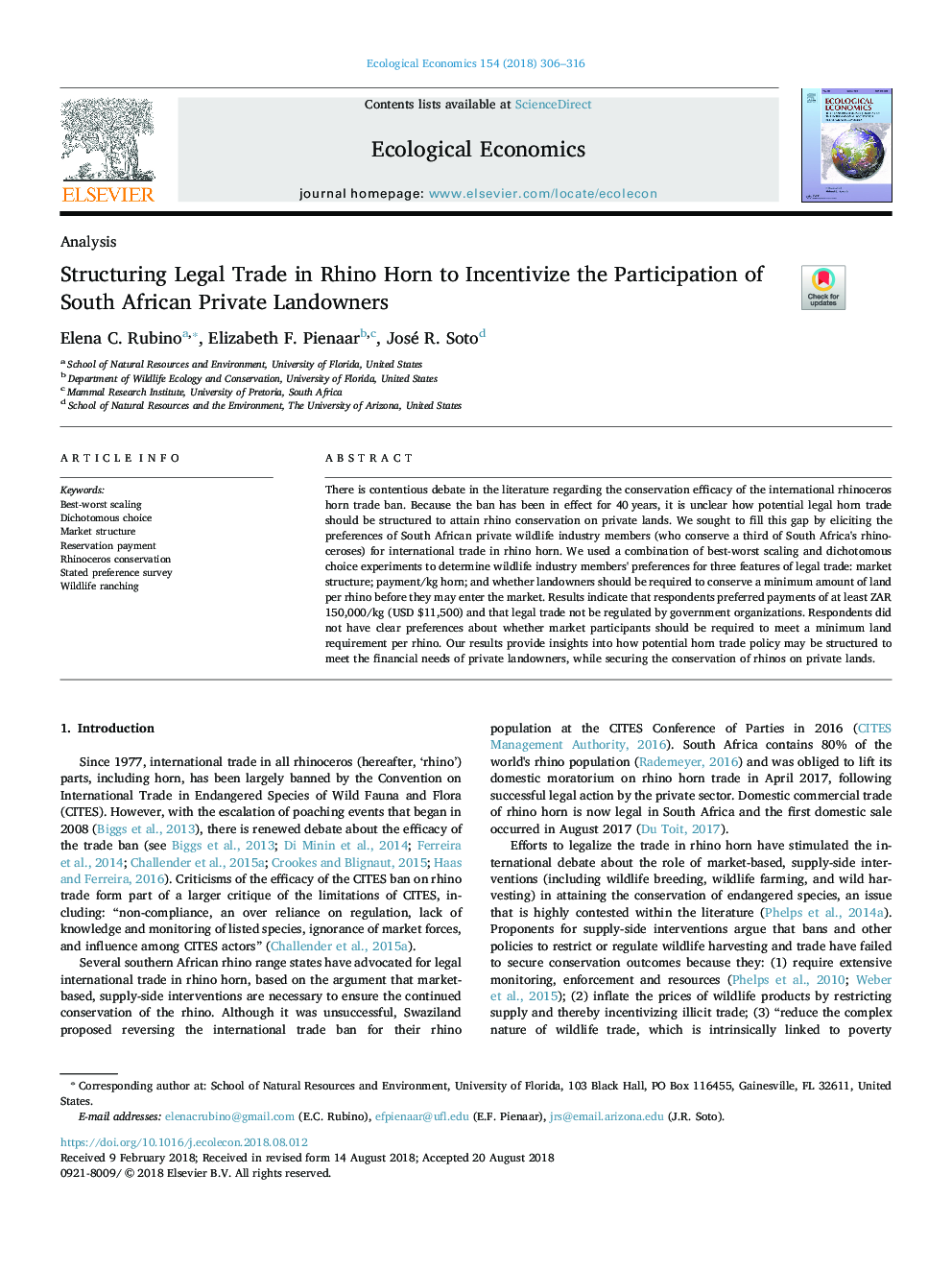| Article ID | Journal | Published Year | Pages | File Type |
|---|---|---|---|---|
| 11004754 | Ecological Economics | 2018 | 11 Pages |
Abstract
There is contentious debate in the literature regarding the conservation efficacy of the international rhinoceros horn trade ban. Because the ban has been in effect for 40â¯years, it is unclear how potential legal horn trade should be structured to attain rhino conservation on private lands. We sought to fill this gap by eliciting the preferences of South African private wildlife industry members (who conserve a third of South Africa's rhinoceroses) for international trade in rhino horn. We used a combination of best-worst scaling and dichotomous choice experiments to determine wildlife industry members' preferences for three features of legal trade: market structure; payment/kg horn; and whether landowners should be required to conserve a minimum amount of land per rhino before they may enter the market. Results indicate that respondents preferred payments of at least ZAR 150,000/kg (USD $11,500) and that legal trade not be regulated by government organizations. Respondents did not have clear preferences about whether market participants should be required to meet a minimum land requirement per rhino. Our results provide insights into how potential horn trade policy may be structured to meet the financial needs of private landowners, while securing the conservation of rhinos on private lands.
Related Topics
Life Sciences
Agricultural and Biological Sciences
Ecology, Evolution, Behavior and Systematics
Authors
Elena C. Rubino, Elizabeth F. Pienaar, José R. Soto,
